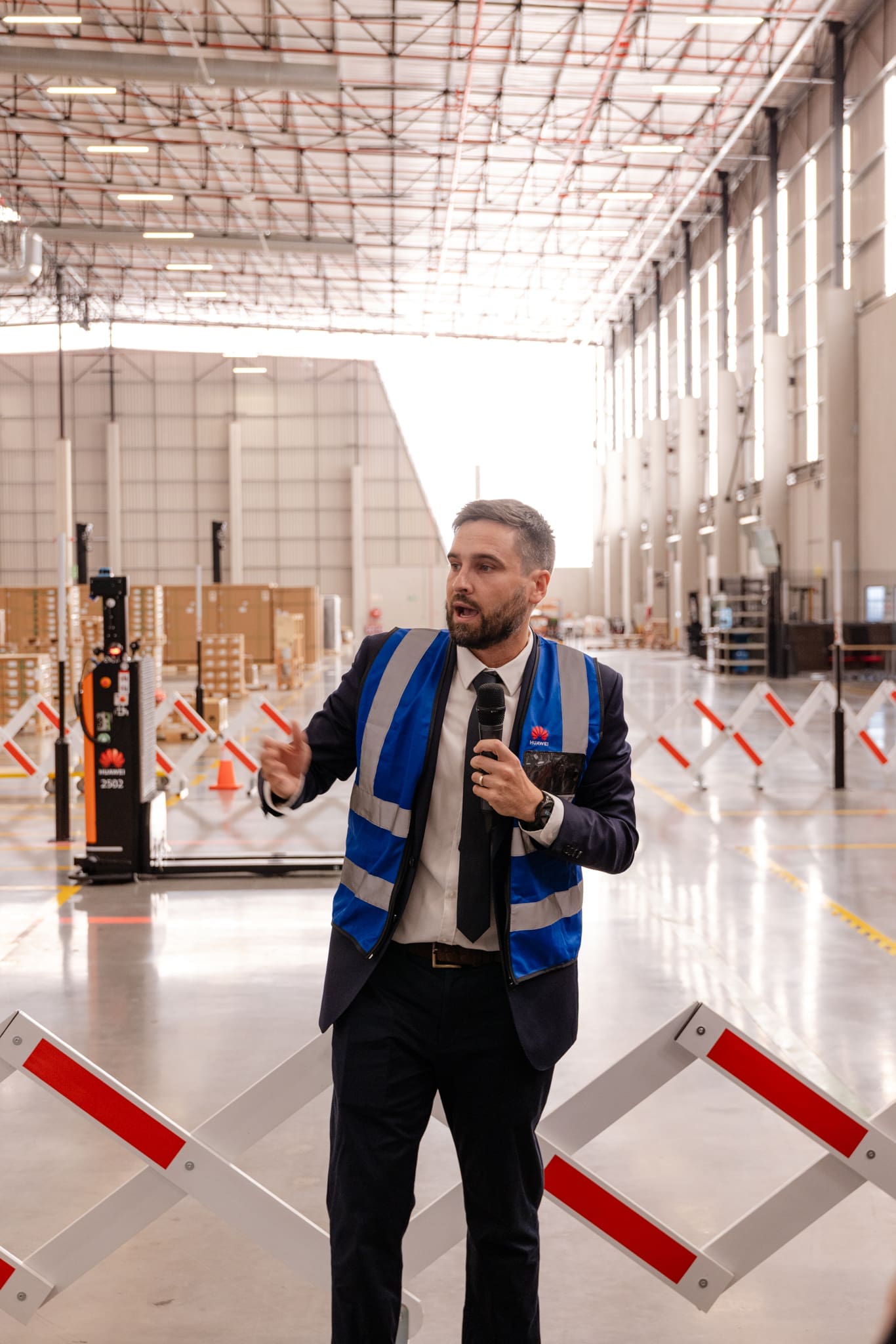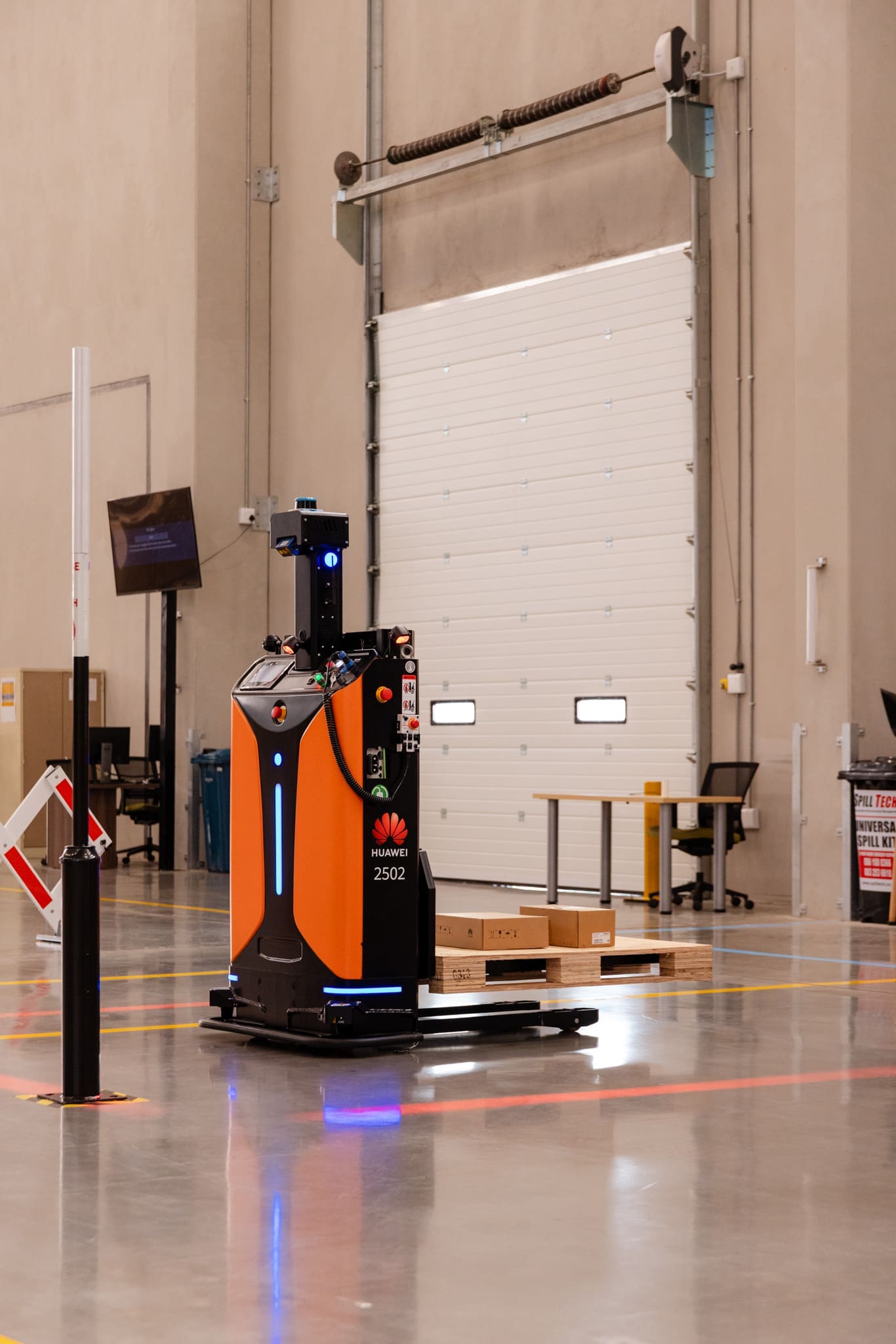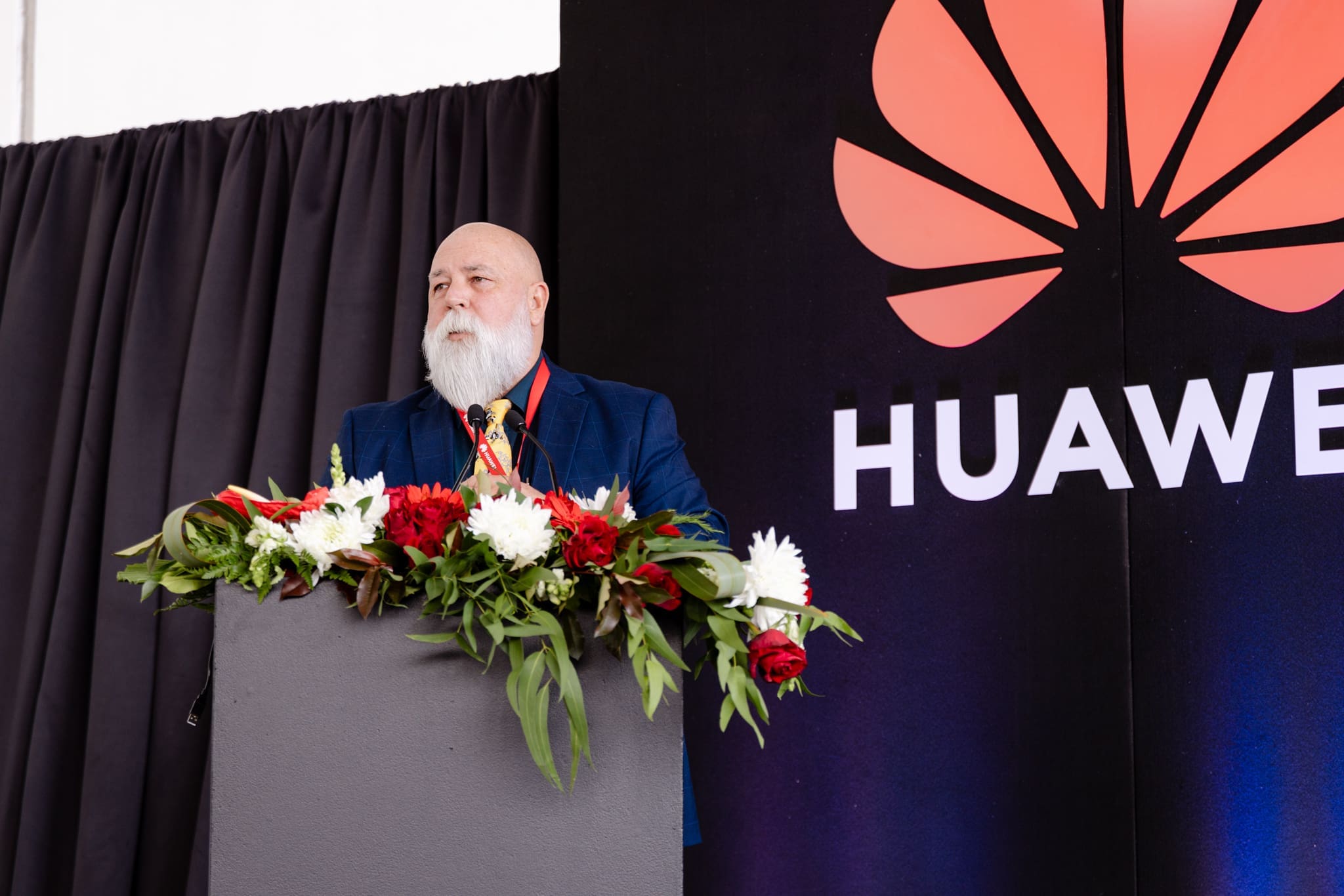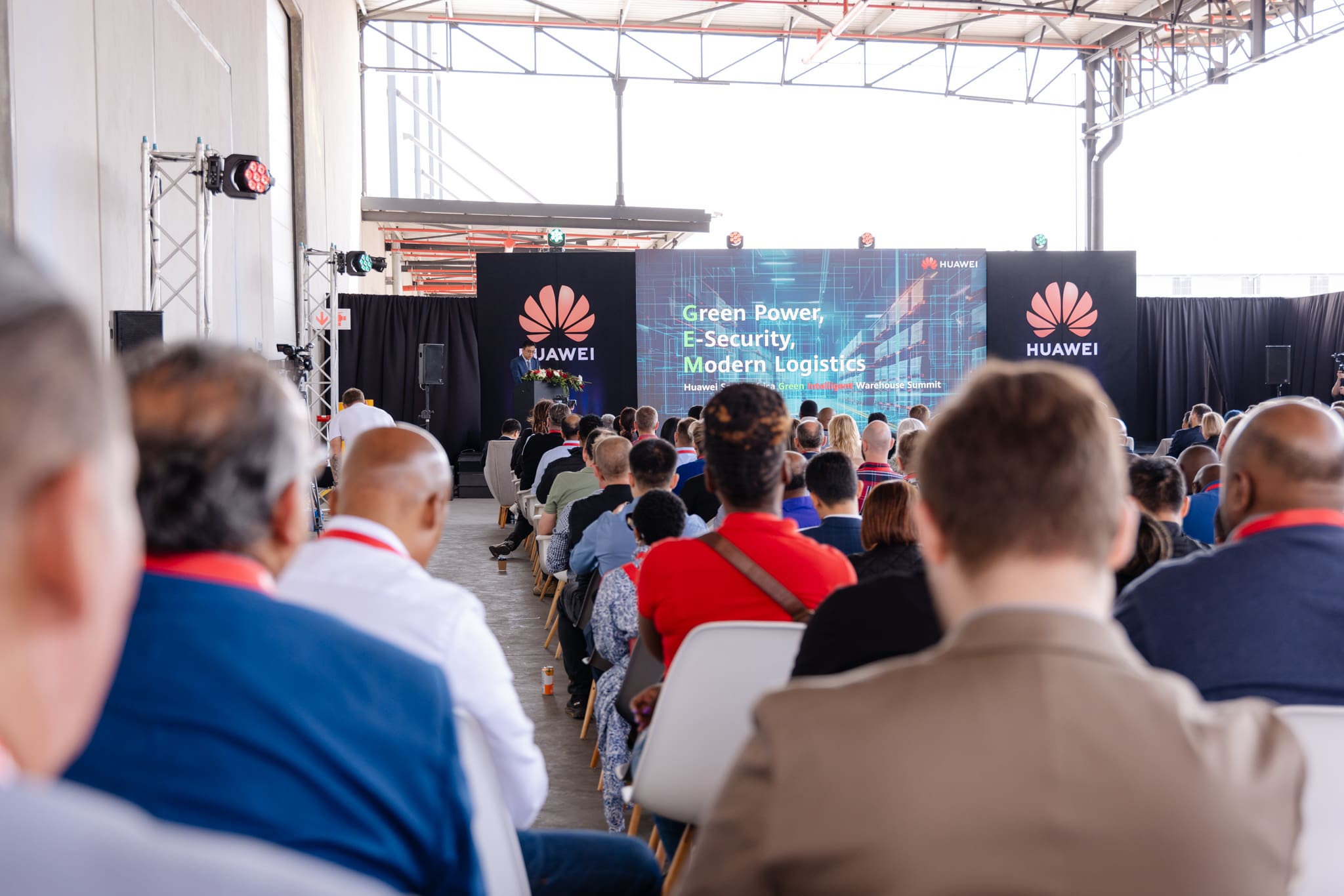– Huawei South Africa has launched its leading smart warehouse solution in Johannesburg. This strategic investment has the potential to revolutionise logistics operations in Africa. The newly opened 14,000 square meter facility boasts advanced technologies that boost efficiency, security and sustainable practices – marking a major step forward for the warehousing industry.
Huawei is transforming Africa’s logistics sector by introducing intelligent systems to enhance efficiency and reduce costs. This smart warehouse represents the future of the industry and showcases Huawei’s commitment to innovation in Africa.
Will Meng, CEO of Huawei South Africa, spoke to the strategic vision for the industry, noting that “the warehouse and logistics market in South Africa was valued at $93 billion in 2024 and is poised to reach $157 billion by 2032. This growth signifies more than just numbers; it represents a transformation towards more agile, responsive and technologically advanced supply chains, which are essential for maintaining a competitive edge in today’s rapidly evolving marketplace,” said Meng.
Driven by Green Power solutions, E-security systems and Modern logistics (GEM), the facility showcases the positive role that smart logistics can have in Africa. The GEM framework is delivered through a digital warehouse management system, which makes it possible to automate 60% of daily processes.
Huawei’s investment in this state-of-the-art facility demonstrates its commitment to developing innovative solutions that will drive the industry forward and help it achieve its strategic objectives.
Digital warehousing
Industry leaders and Huawei guests were given an exclusive tour of the green intelligent warehouse to gain first-hand experience of how the AI-powered facility operates. Stevin John Du Plessis, Logistics Manager for Huawei South Africa’s Supply Chain Business, led the tour. Key features of this smart warehouse include:

- Green power solutions: The site utilises a 150KWp PV system supported by Huawei’s SUN2000-100KTL-M2 inverter on each building. This generates around 90% of the facility’s daytime energy needs. As Herman Fourie, Senior Solutions Manager, Digital Power South Africa, pointed out, “businesses of today are looking at creative ways to protect revenue. They need a sustainable model to mitigate against the increasing pricing of electricity.” Huawei’s smart warehouse solution enables companies to meet their own energy needs and achieve further returns on investment by trading excess power back to the grid.
- E-security: An intelligent camera system provides 24/7 full color coverage and AI-enabled features to detect safety hazards and security incidents. This system removes the need for large control rooms while enhancing overall safety and security within the warehouse and leaving more space for products to be stored. The involved cameras have the front-end AI capability, which greatly reduces the pressure of back-end recognition. In addition, the cameras can provide full-color clear images when there is no light at night. In the warehouse itself, cameras are connected through Huawei’s optical solution, allowing real-time monitoring of all warehouse operations.
- Modern logistics: The picking operation in the warehouse is 100% paperless, using PDA scanners for real-time operations. The role of warehouse pickers at this smart facility has also evolved thanks to its use of Automated Guided Vehicles (AGVs) and Automated Guided Forklifts (AGFs). Traditional warehouses rely on pickers to fetch goods and bring them to outbound stations. The smart warehouse transforms this role by using AGVs and AGFs to automate this work by bringing goods to a picker. This increases efficiency by enabling pickers to process around 110 lines per hour compared to traditional warehouses that process up to 60 lines per hour. It also speeds up loading times and helps workers avoid the potential hazards of operating heavy machinery.

These intelligent AI-led solutions allow the facility to achieve an overall increase in efficiency of between 70% and 80% when compared to traditional warehouses, said Du Plessis. Huawei’s innovative approach to warehousing solutions sets a new standard for logistics companies in the region.
Industry-defining innovation
York Ning, Director of Enterprise Marketing & Solutions at Huawei South Africa, explored the details of the facilities’ intelligent ecosystem and how it meets industry needs in an ever-evolving sector. “Our warehouse management system unifies all logistic operations, integrating AGVs and AGFs to provide intelligent task allocation and scheduling,” he said. This means the smart systems are used to enable staff members to work side-by-side with autonomous technology and improve productivity by 37% per employee.

Industry partners such as Africa Global Logistics discussed why they prefer to work with Huawei. Fergus Fitch, Chief Operating Officer at the company, said, “We have been logistics partners with Huawei for 15 years now, and have extended our partnership further with the procurement of their technology which has helped Africa Global Logistics achieve operational excellence and streamline our processes.”

The company employs more than 23,000 people across 50 countries, and it has plans to integrate Huawei technology as it expands in Africa. “We will build approximately 35 000 square metres of warehousing and a five-story office building, that will be our flagship Africa Global Logistics campus on the continent, which will be fully integrated with Huawei products,” said Fitch.
Will Meng’s concluding words embody Huawei’s views about the industry. “We are dedicated to delivering innovative solutions that not only address today’s challenges but also pave the way for future opportunities. We are eager to collaborate with our customers and partners to accelerate the digital transformation of the warehousing industry.”
By integrating green energy solutions, e-security systems, and modern logistics, Huawei’s GEM framework has not only allowed it to optimise operations, it has also created a blueprint for modern warehousing that prioritises efficiency, safety, and environmental responsibility. The success of this initiative demonstrates the potential for similar advancements across industries, driving economic growth and technological progress in South Africa and beyond.

Crédito: Link de origem


